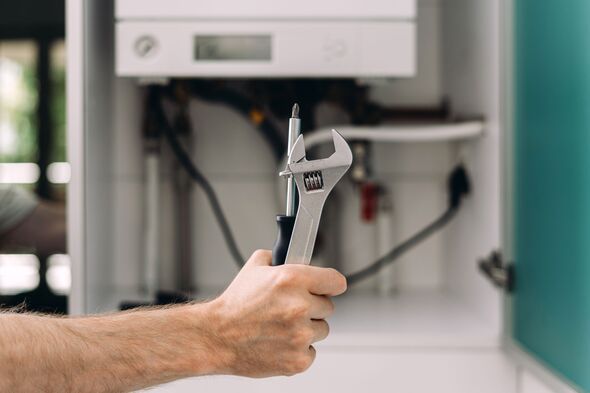

Enhancing home energy efficiency in the UK has grown increasingly vital as energy costs remain high following the 2022 spike.
What many might not know though is that your house may potentially be eligible for government-backed home improvements - which in turn will inevitably cut energy costs for households.
A UK property buyers' expert has identified five home upgrades that could help UK homeowners in lowering their energy bills - and crucially, these can be fitted at no cost through current support programmes. Additionally, the specialist has outlined how each subsidised installation could enable households to save hundreds of pounds annually on their energy bills.
Saif Derzi, founder of Property Buyers Today, explains: "Millions of homes across the UK qualify for fully funded improvements that can boost efficiency and cut costs, but most owners aren't aware they're eligible. The Energy Company Obligation and other programmes specifically target properties with poor energy ratings to help reduce fuel poverty and carbon emissions."
Read on to find out which home improvements are backed by the government or have support schemes available and whether you're eligible.
Cavity wall insulationProperties with uninsulated cavity walls lose warmth rapidly, meaning funds are squandered each time the heating operates. Numerous properties constructed between 1930 and 1990 feature cavity walls that can be readily filled with insulation to enhance efficiency.
According to Saif, installing cavity wall insulation could save a typical semi-detached home approximately £300 annually on energy bills. The installation process is now straightforward and typically takes only a few hours to complete.
External wall insulationProperties built before 1930 frequently feature solid walls that lose double the amount of heat compared to cavity walls. External insulation functions like a thermal blanket, enhancing the property's energy efficiency whilst simultaneously giving it a refreshed look.
This improvement is particularly well-suited for older properties, delivering both energy savings and aesthetic enhancements. The finish can replicate traditional rendering or brickwork, helping to preserve the character of period homes.
Boiler replacementsBoiler replacements rank among the most valuable free improvements available, as older, inefficient models waste substantial amounts of gas or oil and frequently struggle to maintain warmth in homes.
Modern condensing boilers operate at 90% efficiency or above, compared to older models that might run at merely 60%. This improvement can result in substantial reductions in energy costs.
The property buying specialist shares: "This upgrade alone can reduce heating costs by 30% or more. Qualifying households can receive completely new heating systems under schemes like ECO4."
Loft insulationLoft insulation represents another complimentary improvement accessible to numerous British homeowners. Saif explains: "According to the UK Parliament, about 7.9 million homes across Britain have inadequate loft insulation, letting valuable heat escape through the roof. Installing insulation to a depth of at least 270mm creates a strong thermal barrier that can significantly reduce heating costs."
The procedure entails placing mineral wool or comparable materials throughout loft areas to contain heat that would otherwise rise and dissipate. Properties with adequate insulation frequently feel warmer and more pleasant almost straight away.
 Solar panel installation
Solar panel installation
Installing solar panels is another beneficial improvement now accessible through government programmes for eligible households.
"Free solar panel systems allow homes to generate their own electricity, reducing reliance on grid power and lowering energy costs. This technology was not previously included in government schemes but now offers one of the most rewarding upgrades available," Saif explains.
A standard 4kW solar arrangement can supply approximately one third of a household's electricity requirements, with the highest savings occurring during summer months. Properties with south-facing roofs gain the most advantage, though east and west-facing homes can also generate considerable amounts of power.
Who qualifies for these free upgrades?Qualification for completely funded improvements typically hinges on elements including household income, benefits status, and the energy efficiency rating of the property. "The main qualifying factors include receiving benefits such as Universal Credit or Pension Credit, having a household income below certain thresholds, or living in a home with a low energy efficiency rating," Saif shares.
"Councils set their own criteria, often including factors like age, health conditions, or location in deprived areas. Properties must typically have Energy Performance Certificate ratings of D to G to qualify, which accounts for nearly half of UK housing stock."
The Department for Energy Security and Net Zero oversees multiple Help to Heat schemes delivering these upgrades, whilst The Energy Company Obligation (ECO4) Programme provides the most substantial funding source, operating until March 2026.
Local Authority Flexible Eligibility can broaden access to these schemes for households that might otherwise be excluded, even without benefit claims, and The Great British Insulation Scheme widens eligibility to households in council tax bands A to D in England, and A to E in Scotland and Wales, provided they have appropriate property types.
 How to apply for home improvements
How to apply for home improvements
The application process starts with an eligibility assessment, which can be completed rapidly by telephone. Homeowners can apply via their energy supplier, local council, or specialist eligibility checkers who help navigate the different schemes available.
Once approved, a qualified surveyor visits the home to assess which improvements would be most suitable and practically achievable. After the assessment, work is arranged with certified contractors. The whole procedure normally takes anywhere from 4-12 weeks from first enquiry to finished work.
Saif recommends householders should move quickly to obtain these upgrades, explaining: "Funding allocations change periodically, and schemes do eventually close. Homeowners with poorly insulated properties should check their eligibility now to avoid missing out on these opportunities."
"What makes these schemes especially valuable is that eligible households receive completely free installations with no catch and no repayments required. Installing multiple energy efficiency measures can turn a cold, expensive-to-heat home into a comfortable and more affordable property," the expert shares.
"By taking advantage of these fully funded upgrades, homeowners can reduce energy bills, make their homes more comfortable, and contribute to a greener future," says Saif.